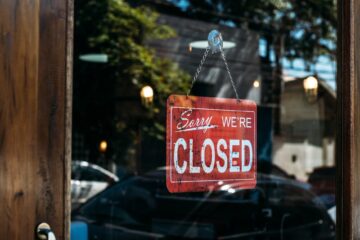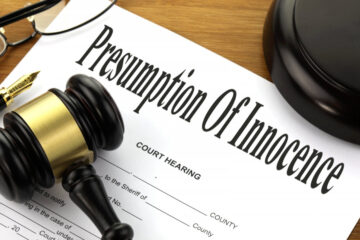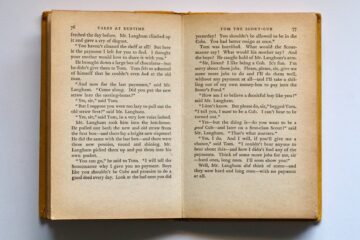This great article from Stuff.co.nz caught my eye: Defence lawyers — saints or scum?. It’s a topic I’ve given a lot of thought to, that being what we call our justice system and the conflict we have between the ideal and reality.
Stevenson and colleague Elizabeth Hall founded the Defence Lawyers Association New Zealand after years of feeling their work was badly understood and poorly supported.
“We know people won’t be grateful for us,” says Stevenson, “but they should be grateful for defence lawyers getting in and holding the system to account and making sure citizens aren’t being wrongly convicted. Everyone should want the system to be just and fair and accurate.”
Stuff.co.nz, Mike White, 30 May 2020
I’m the first to admit that many defence lawyers are far from saints, but then again we have our share of non-saintly police officers and prosecutors as well.
We all too often forget just how vital a good defence lawyer is to upholding justice and protecting individual rights. As my criminal law lecturer once explained to me, no-one values a defence lawyer until it is their son/daughter/husband/wife/etc that is wrongly or over-charged for an offence.
Knight just been found guilty of burning down Foxton’s Manawatu Hotel with friend Phillip Johnston, and jailed for six years. The truth was, they had nothing to do with it and had been convicted on a lie foisted by bullying police and phoney forensics.
The inmate reckoned Stevenson was a good lawyer, so Knight got in touch. Stevenson took his case to the Court of Appeal and after nine months in prison, Knight and Johnston were released. At Knight’s retrial, the Crown presented no evidence, police later apologised, and the government awarded Knight and Johnston compensation for their wrongful conviction.
Stuff.co.nz, Mike White, 30 May 2020
Imagine if Knight was your son, what would you think of Stevenson? Saint or sinner?
The almost eternal question defence lawyers get asked is, how could they? How could they get up there, with their fine robes and fine words, and tell a jury not to convict someone who is obviously guilty? How can they sleep at night?
“I’m a bit bemused it’s still a common question,” says Stevenson. “Maybe some bad American TV has caused a misunderstanding, but no defence lawyer takes a confession from a client and goes to a jury and says he’s innocent. If you’re going to trial, it’s because the person is saying, ‘I didn’t do it.'”
Stuff.co.nz, Mike White, 30 May 2020
What a lot of people don’t realise is that a lawyer’s first duty is to the court. If a client tells you “I did it” you simply cannot tel l the court the person is innocent. You of course also have a duty to your represent your client, which means if they then instruct you to plead not guilty, you have no choice but to withdraw from the case.
… “what kind of s…arse system would we have if most of the people that were charged, were in fact innocent? So we have to keep the system safe, in case innocent people do fall into it.”
Stuff.co.nz, Mike White, 30 May 2020
This is the point of defence lawyers and one of the pillars of “innocent-until-proven-guilty” (spoiler alert, there is more than one pillar).
Epati says defending people in court changed her as a lawyer. “But I think more fundamentally, it changed me as a person.”
It taught her not to judge hastily, to shun prejudice, to realise how much people needed help when caught up in the justice system.
Stuff.co.nz, Mike White, 30 May 2020
For me, the real eye-opener was volunteering at a community law centre. Working with our defence lawyer (who I add usually worked for free, right up until the centre ran out of money and folded) I saw a different world.
While there were a bunch of … ahem … rat-bags who came through the door. A high number were just really unfortunate, unlucky people who were trying their best to do the right thing. Some were charged with offences they clearly did not commit, some over-charged and facing penalties way out of proportion to what they did and some needed help the “justice system” couldn’t provide (e.g., mental health, drug addiction, etc).
We must always remember not to judge a man or woman until you have walked a mile in their shoes (and even then, I’d argue a mile is no-where long enough).
McVicar accepts that if she was ever wrongly accused of something, she’d want a good lawyer. But if she was guilty, she’d fess up and take the consequences.
Stuff.co.nz, Mike White, 30 May 2020
Yes, I agree with this whole heatedly. However, what if you were approached in a dark alley outside a bar. The person starts shouting in your face, you react and push them away. The person falls over, hits their head and dies.
The police then refuse to accept your side of the story, as the victim’s mate lies about what happened and you are charged with murder, facing life in prison.
Is it easy to say you would just take the consequences? Perhaps that is true of the crime you perceive you committed, but not some greater crime. Taking those consequences would, to you and society, result in a grave injustice.
There are of course many, many lesser cases than this. But it is where the role of the defence comes in. To hold the prosecution to account, to ensure the evidence is tested and that the consequences (if the crime is proven) fit the crime.
And it does happen, even though we like to pretend otherwise. International research estimates between 3-5 per cent of those jailed are factually innocent. Even at the bottom of that range, it would mean around 300 wrongfully convicted people in New Zealand’s prisons.
Stuff.co.nz, Mike White, 30 May 2020
For some people it’s easy to dismiss 3-5% as being collateral damage, but not so much when you know and love the person.
Law Society president Tiana Epati: “Criminal lawyers don’t make a lot of money, they don’t do it for the money, they do it because they care.”
But Law Society president Tiana Epati insists the deck is stacked against the defence, with defence lawyers in murder trials earning around half what prosecutors will. From their hourly fee, they have to pay for offices, research libraries, photocopiers, practising certificates and all other expenses.
“There’s no equality of arms. You’ve got all the resources of the police and the Crown coming against this person and you’re the only thing that stands in the way of them just completely overrunning the person, because they’ve decided this person did something. And you’re hanging out there in the cold on legal aid and it’s hard, it’s really hard.
“But if you say to someone, ‘Hey, can we take a lot of your taxpayer dollars and put them into defending criminal defendants?’ they’d say, no.”
Stuff.co.nz, Mike White, 30 May 2020
This was worth quoting at length, as it is a key point. It is also, in my opinion, why we have many of the issues we have with some defence lawyers. I hate to say it, but when you pay peanuts you sometimes get monkeys – which is not to say there aren’t some bloody fantastic defence lawyers out there, they just arent in it for the money.
Lobbying for greater focus on victims has further exacerbated the challenges facing defendants and their lawyers, argues Hall.
“Complainants are called victims before there’s even been a trial. I mean, the whole purpose of a trial is to decide if someone is a victim, and if they are, of what. And the people that should be holding the line on this and ensuring we have an innocence presumption, have really let the side down.”
Stuff.co.nz, Mike White, 30 May 2020
Now, while I have a huge amount of sympathy for this opinion and to a significant extent agree with it, it doesn’t tell the whole story. The danger in too little focus on the complainant, is that genuine victims are very often put through the wringer at the expense of those who are clearly “not-innocent”. Now, there may be a question of what the crime was and what the consequences would be, but that doesn’t justify victimising the victim for the sake of ensuring justice is seen to be done.
However, in my opinion, the easiest solution for this is to ensure we have a much more efficient and well resourced justice system (i.e., prosecution, defence and courts). A huge part of the problem is how slow the process is, which is terrible for victims and those accused of crimes.
For example, I suspect many people would not expect to be held on bail (or even in prison) for 12-18 months when merely accused of a crime, especially if you either dispute you did it or think the police have way over-charged you.
Having said that, I acknowledge there is no easy fix and it certainly is not as simple as throwing more money at the problem. What is needed is a conscious effort to improve and reform the system. This will take time, require broad consultation, reaching compromises and a substantially increased investment. However, in my humble opinion, surely this is worthwhile doing and doing soon as what sort of society do we have where we do not place the highest value on how we treat each other and how we administer justice?


